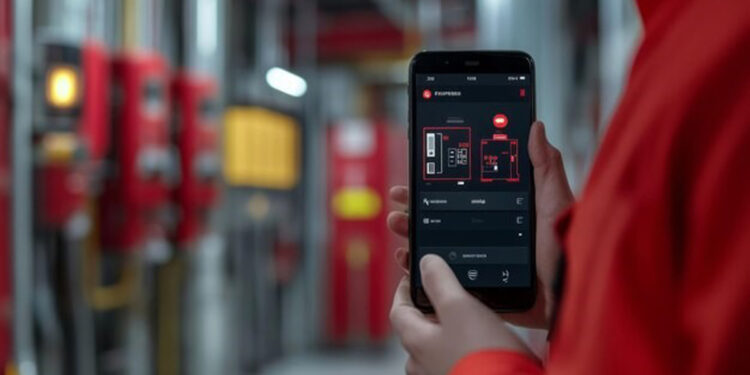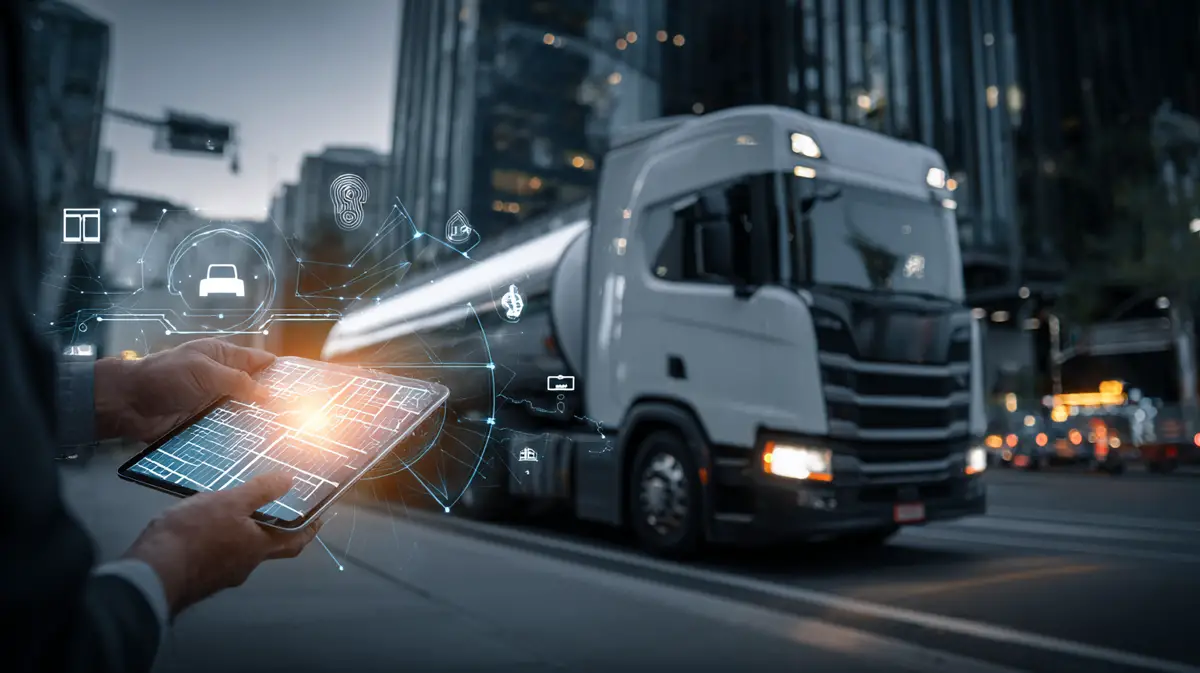Future Trends in On-Demand Fuel Delivery App Development

The on-demand economy has revolutionized countless industries, from food delivery to transportation services, and now it’s transforming how consumers access fuel for their vehicles. As urbanization accelerates and consumer expectations for convenience continue to rise, the traditional model of visiting gas stations is being challenged by innovative fuel delivery solutions. This shift represents not just a temporary response to changing consumer behaviors, but a fundamental transformation in how we think about fuel distribution and automotive services.
The Current Landscape and Market Evolution
The fuel delivery app market has witnessed remarkable growth, particularly accelerated by recent global events that emphasized contactless services and convenience. Early market entrants have demonstrated that consumers value convenience and are willing to adopt new service delivery models when they provide clear benefits over traditional alternatives.
Early adopters in the fuel delivery space have established proof of concept, demonstrating that consumers are willing to pay premium prices for the convenience of having fuel delivered directly to their vehicles. This market validation has attracted significant investment and sparked innovation across multiple technical and operational dimensions.
Working with an experienced Fuel Delivery App Development Company like JPLoft has become crucial for businesses looking to enter this emerging market. These specialized firms understand the unique regulatory requirements, safety protocols, and logistics challenges that distinguish fuel delivery from other on-demand services. The complexity of handling hazardous materials, managing supply chain logistics, and ensuring compliance with local and federal regulations requires expertise that goes far beyond standard app development.
Artificial Intelligence and Machine Learning Integration
The future of fuel delivery app development is increasingly intertwined with artificial intelligence and machine learning capabilities. These technologies are revolutionizing how platforms predict demand, optimize delivery routes, and manage inventory across multiple locations and vehicle types.
Advanced AI algorithms can analyze historical usage patterns, weather conditions, traffic data, and local events to predict when and where fuel demand will peak. This predictive capability enables companies to position their delivery vehicles strategically, reducing response times and operational costs while improving customer satisfaction.
Machine learning systems are also being implemented to optimize fuel pricing in real-time based on market conditions, competitor pricing, and demand fluctuations. This dynamic pricing capability allows companies to maximize revenue while remaining competitive, particularly during high-demand periods or in areas with limited competition.
Internet of Things (IoT) and Smart Vehicle Integration
The integration of IoT technology represents one of the most significant trends shaping the future of fuel delivery applications. Smart vehicle sensors can monitor fuel levels continuously and automatically trigger delivery requests when tanks reach predetermined thresholds. This proactive approach eliminates the inconvenience of running low on fuel and ensures vehicles are always ready for use.
Connected car technologies are enabling seamless integration between vehicle systems and fuel delivery platforms. Future applications will communicate directly with vehicle computers to determine exact fuel requirements, preferred fuel types, and optimal delivery scheduling based on the owner’s driving patterns and calendar integration.
Fleet management companies are particularly interested in these IoT capabilities, as they enable automated fuel management for entire vehicle fleets. The ability to monitor and manage fuel consumption across hundreds or thousands of vehicles provides substantial operational efficiencies and cost savings.
Sustainability and Alternative Fuel Integration
Environmental consciousness is driving significant innovation in fuel delivery app development, with platforms increasingly supporting alternative fuel types and sustainable delivery methods. Electric vehicle charging services are being integrated into fuel delivery platforms, recognizing that the future of transportation includes multiple energy sources.
Companies are developing capabilities to deliver not just traditional gasoline and diesel, but also biodiesel, ethanol blends, and even hydrogen fuel for specialized vehicles. This diversification requires sophisticated inventory management systems and specialized delivery equipment, creating opportunities for companies that can handle multiple fuel types effectively.
The delivery process itself is becoming more environmentally conscious, with companies investing in electric and hybrid delivery vehicles to reduce the carbon footprint of their operations. Some platforms are implementing carbon offset programs, allowing environmentally conscious consumers to neutralize the environmental impact of their fuel delivery services.
Blockchain Technology and Supply Chain Transparency
Blockchain technology is emerging as a powerful tool for ensuring fuel quality, authenticity, and supply chain transparency in delivery applications. Smart contracts can automate fuel procurement, quality verification, and payment processing while providing immutable records of fuel origin and handling.
This transparency is particularly valuable for commercial customers who require detailed records for tax purposes, environmental compliance, or quality assurance programs. Blockchain integration can provide end-to-end traceability from refinery to end consumer, building trust and accountability throughout the supply chain.
Enhanced Safety and Security Features
Safety remains paramount in fuel delivery app development, driving innovation in multiple areas including driver verification, vehicle tracking, and emergency response protocols. Advanced biometric authentication systems are being implemented to ensure only authorized personnel can access and deliver fuel.
Real-time vehicle tracking and monitoring systems provide customers with precise delivery status updates while enabling companies to respond quickly to emergencies or security concerns. Geofencing technology ensures deliveries occur only in approved locations and can automatically alert authorities if vehicles deviate from approved routes.
Advanced safety protocols are being built into applications to handle various emergency scenarios, from fuel spills to vehicle accidents. These systems can automatically contact emergency services, provide precise location information, and guide both drivers and customers through appropriate safety procedures.
Regional Development and Market Expansion
Different geographic regions are experiencing varying levels of adoption and regulatory acceptance of fuel delivery services. A mobile app development company in Denver might face different regulatory requirements and market conditions compared to companies operating in coastal metropolitan areas, highlighting the importance of localized development approaches.
Western markets are generally more receptive to innovative service delivery models, while other regions may require more extensive regulatory navigation and community education. Understanding these regional differences is crucial for companies planning national expansion strategies.
Advanced Analytics and Customer Intelligence
Future fuel delivery platforms are incorporating sophisticated analytics capabilities to understand customer behavior, optimize service offerings, and identify new market opportunities. These systems analyze delivery patterns, customer preferences, and usage trends to provide personalized service recommendations and pricing.
Predictive analytics can identify customers likely to churn, enabling proactive retention efforts through targeted promotions or service improvements. Customer lifetime value modeling helps companies optimize acquisition spending and service level investments for maximum profitability.
Regulatory Technology and Compliance Automation
As the fuel delivery industry matures, regulatory compliance becomes increasingly complex and important. Future applications are incorporating automated compliance monitoring systems that ensure adherence to local, state, and federal regulations governing hazardous material transportation and fuel handling.
These systems can automatically generate required documentation, maintain compliance records, and alert operators to changing regulatory requirements. Integration with government reporting systems streamlines regulatory compliance while reducing administrative overhead for operators.
Integration with Smart City Infrastructure
The future of fuel delivery apps includes integration with smart city infrastructure systems, enabling coordination with traffic management, emergency services, and urban planning initiatives. These integrations can optimize delivery routes based on real-time traffic conditions and city events while providing valuable data for urban planning purposes.
Conclusion
The future of on-demand fuel delivery app development is characterized by technological innovation, environmental consciousness, and evolving consumer expectations. Companies that successfully navigate the regulatory complexities while implementing cutting-edge technologies will be positioned to capture significant market share in this growing industry.
Success in this space requires more than just technical expertise—it demands understanding of logistics, regulatory compliance, safety protocols, and customer service excellence. As the market continues to mature, the companies that combine technological innovation with operational excellence will define the future of how consumers access fuel for their vehicles.










